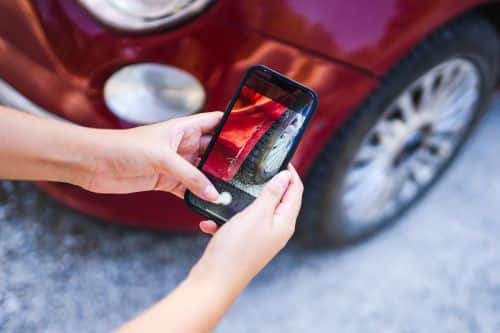Menu
Social Media Rules to Follow After an Auto Accident
December 10th, 2024

Social media sites like Facebook, Instagram, X (formerly Twitter), TikTok, and SnapChat are popular ways to connect with family and friends and share information about what’s happening in our lives. Most of us have at least one social media profile, and recent statistics show that over 5 BILLION people use some form of social media every day.
Whether we use social media to share vacation photos, announce a wedding or engagement, or plan a work outing, it can seem like everything is online. Unfortunately, using social media can have unintended consequences, especially if you were injured in a motor vehicle accident or suffered some other type of personal injury.
Even though many people do it, it is unwise to share information about your personal injury claim online. Here, our personal injury lawyers offer five rules to follow about posting online after a car accident.
5 Social Media Rules About What to Post After a Car Accident
Judges across the country have ruled that social media posts are public information that can be used as evidence in a court case. Michigan law states that “Parties may obtain discovery regarding any matter, not privileged, which is relevant to the subject matter involved in the pending action...including the existence, description, nature, custody, condition, and location of...electronically stored information." As a practical matter, this means any information you share on social media can be used against you. Protect yourself by following these five rules about what to post after a car accident.
1. Post Sparingly, or Not at All
The best way to avoid having your claim compromised by a social media post is not to post at all. But if you simply cannot stay off of social media, be thoughtful about what you post and think about how an insurance adjuster or defense attorney could use it to compromise your claim for damages.
For example, if you are claiming damages from a broken leg but post photos or videos of a recent ski trip, you undermine your credibility and could risk losing out on significant money damages. Even if you don’t share information directly about your injuries but post about being out with friends and having a good time, a judge, jury, or insurance adjuster could use this information as evidence that you were not injured as severely as you claim to be.
Generally, it is safe to stick to the following points:
- You were injured in an accident
- You are seeking medical treatment
- You are grateful for the support of friends and family
DO NOT:
- State an opinion on who was at fault or accept fault for any part of the accident
- Minimize the severity of your injuries
- Say you are feeling fine or do not need medical attention
- Post photos of your injuries or pics of car crashes
This advice applies to your own posts as well as comments or replies to information posted by others. “When in doubt, leave it out.”
2. Set Your Social Media Profiles to Private
If you were injured in a car accident and are seeking compensation for your losses, assume someone is looking for information about you and your injuries. Social media is one of the easiest ways to find people, and insurance adjusters routinely turn to social media to look for any information they can find.
Protect yourself by making your accounts as private as possible. For example, make sure your default posting setting on Facebook is “Friends Only,” and limit who can see your posts or contact you and how much data and personal information the platform can share.
3. Ask Friends and Family Not to Post About the Accident
You are not the only person who could weaken your case by posting on social media. If a friend, spouse, or partner posts information about you on their profile, these details could be used to undermine your credibility or otherwise damage your claim.
Ask friends and family members to refrain from posting about you or including you in their posts until after your case has been resolved.
4. Be Careful About Accepting New Friend Requests or Follows
Insurance adjusters and private investigators can and do create fake profiles to try to learn about you and your injuries and gather evidence they can use to discredit you. Be vigilant about accepting new requests to connect and ensure any new connections are people you genuinely know.
5. Do Not Delete Anything Without First Consulting Your Attorney
If you already posted about your case or your injuries, you may be tempted to delete this information. Even after a post is deleted, it can be retrieved in an archived version. It will only make you look worse if the insurance company can show you deleted a potentially damaging post. You could face allegations that you destroyed evidence.
If you are considering deleting a social media post, speak to your lawyer first.
Be Careful What You Post After a Car Accident
Social media is a powerful tool that connects people across the country and around the world. But it also creates a trail of evidence that can be used against you in a personal injury lawsuit. While the urge is strong to share what happened online, be careful what you post. Think twice, and follow common sense. We have never seen a social media post win a lawsuit, but we have seen them ruined by one.
Contact Muth Law, P.C., Today
If you were injured in a motor vehicle accident or have another type of personal injury claim, Muth Law can help. Call 734-481-8800 or contact us online to schedule a free, confidential, and no-obligation appointment to discuss your situation.


